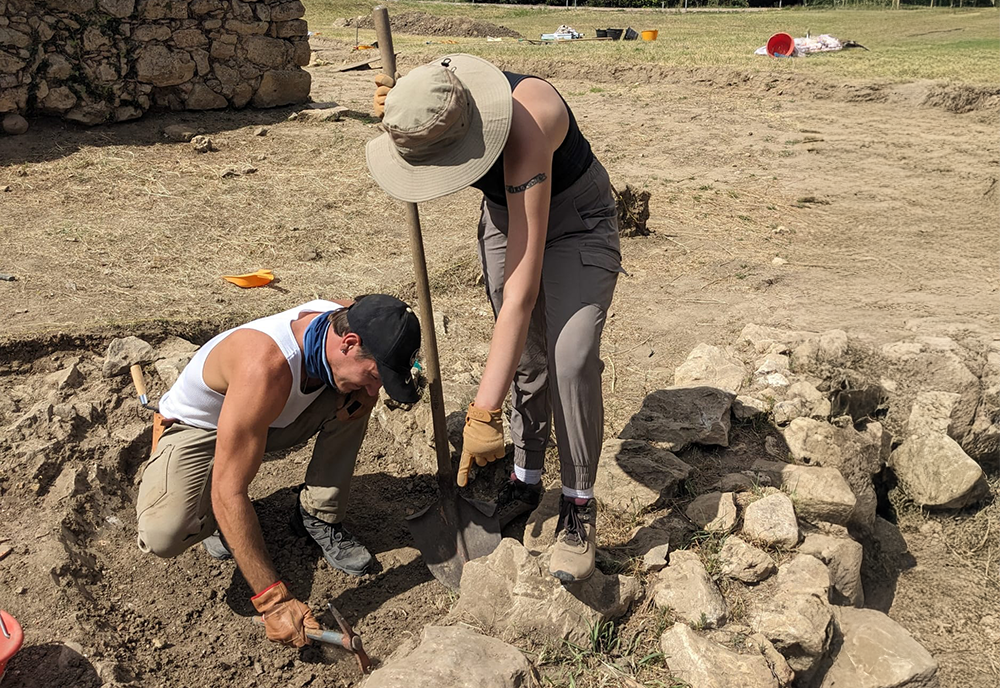By Kellie Britch, College of Arts and Sciences
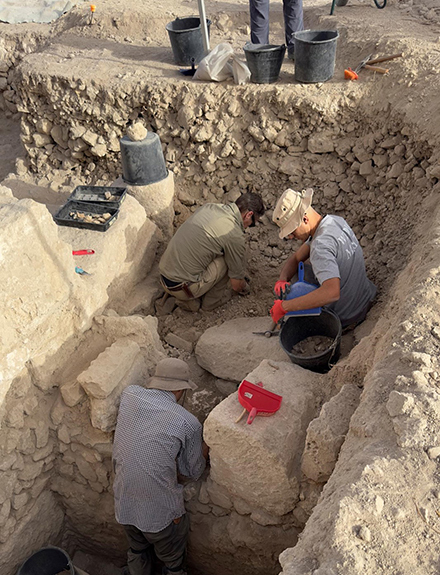
While students spend much of their time digging, they also have opportunities to explore museums, cathedrals, catacombs and the local culture. (Photo courtesy of Lisa Shorts)
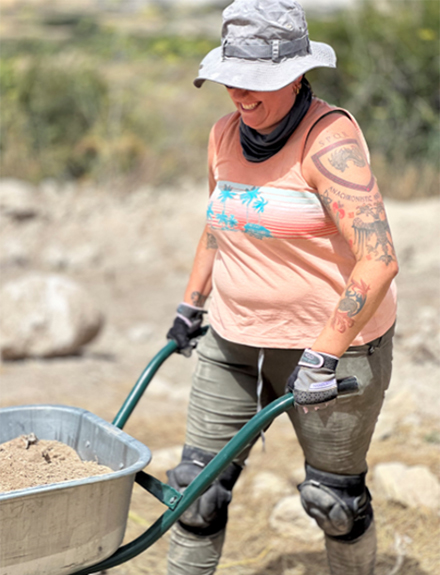
Students are given jobs and dig areas during their field research. (Photo courtesy of Lisa Shorts)
The Institute for Digital Exploration (IDEx) is a hub in USF’s College of Arts and Sciences for not only impactful research, but also for providing students with life-changing experiential learning opportunities. Some of the most popular of these opportunities are study abroad programs that allow students to conduct undergraduate and graduate research in fields like archaeology, history, environmental studies and geosciences. The students who joined the 2024 program recently gave presentations to the IDEx donors, highlighting the impact their funds have had on their academic journey.
“They are not real ‘study abroad programs’ with credits at stake and a focus on teaching, but rather research-driven fieldworks,” said Davide Tanasi, a professor of digital humanities in the Department of History and director of IDEx.
Students and faculty in the institute conduct research across the United States in places like Florida, Massachusetts and Colorado, and abroad. Tanasi, for example, co-directs two ongoing research projects in Sicily and Malta.
Each of Tanasi’s fieldwork projects run for three weeks during the summer – Melite Civitas Romana is in June while ARCHLabs is in July. Though undergraduate and graduate students from all departments are welcome to apply, the programs are primarily meant for graduate students from the history and anthropology departments who have thesis and dissertation projects on ancient Sicily and Malta and who are using IDEx as an incubator for their research.
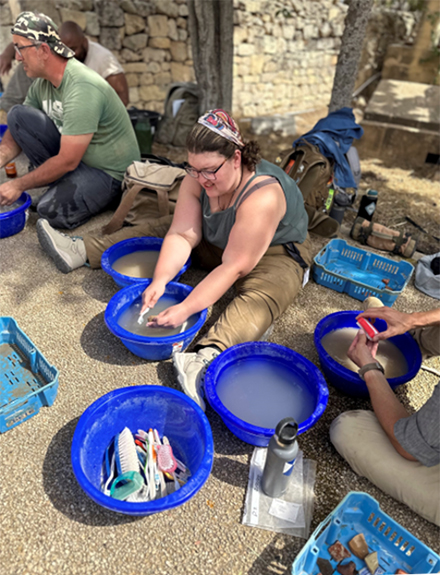
During their time on site, students reported finding teeth, bones, clay and mosaic tiles. (Photo courtesy of Lisa Shorts)
“During the project, students work on archaeological excavation, excavation data recording, archaeological materials processing and documentation, remote sensing surveying via geomagnetic prospections and 3D digitization via terrestrial LIDARs,” said Tanasi. “They also get privileged access to the sites, museum collections, libraries and archives in Sicily and Malta related with their research.”
For students who have dedicated their academic careers to the study of ancient Mediterranean history and archaeology, the ability to participate in hands-on, on-site research dramatically deepens their understanding of ancient cultures.
“It’s amazing how your perception of the space changes when you’re at it,” said Madeleine Kraft, a doctoral candidate in the Department of History, who participated in the Summer 2024 fieldwork project in Sicily, digging at the Villa del Casale in Piazza Armerina. “The spaces are intricate, and maps do not do them justice. They have been used and reused since the third century, so it’s hard to capture just how intricate they are on 2D maps. By being there, I understood more of the functional usage.”
Kraft, and others like her, are driven by passion, but their work wouldn’t be possible without the generous support of donors, like Liana Fernandez Fox, a retired educator and alumna of the College of Arts and Sciences.
“We didn’t have these opportunities when I came to USF as a freshman in the ‘60s, so this whole project means something to me,” said Fox, who is also a member of the Dean’s Advisory Council. “It’s all about finding an experience that’s going to pay off in the long run, and I really feel that this is doing that for these students. How could you not support? It checks all my boxes.”
“We’re some of the few students who have to travel such a long way for our research,” Kraft said. “A colleague of mine from USF is in Boston doing her research, which is a 3-hour, much cheaper flight than my transatlantic flights tend to be. The only way we are able to have these kinds of experiences is because of donor generosity.”
Learn more about the Institute on Digital Exploration and opportunities to support its programs by visiting the website.
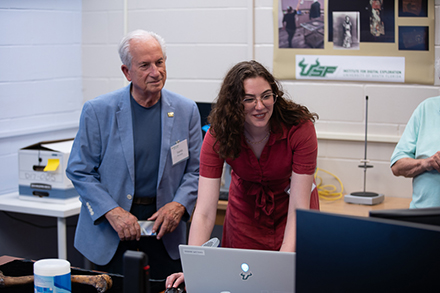
During their visit in the IDEx lab, the donors got to see firsthand how students and faculty use technology to scan, and therefore preserve, artifacts. (Photo courtesy of Davide Tanasi)
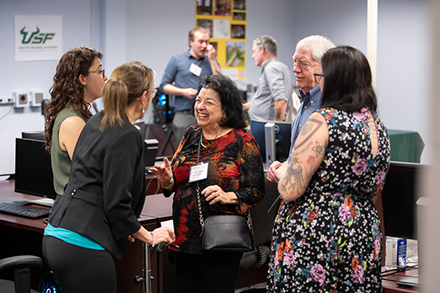
Once the students return from their fieldwork, they have an opportunity to meet and personally thank the donors that make their work possible. (Photo courtesy of Davide Tanasi)
